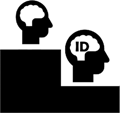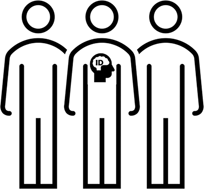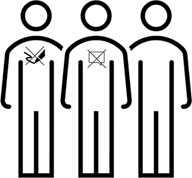Refine listing
Actions for selected content:
Intersectional Epistemologies: The Ethics and Politics of Epistemic Practice
Volume
38 -
Special Issue 4
-
Fall 2023
Contents
Introduction
Intersectional Epistemologies: The Ethics and Politics of Epistemic Practice: Special issue of Hypatia
-
- Published online by Cambridge University Press:
- 25 March 2024, pp. 665-673
-
- Article
- Export citation
Musing
Cis Feminist Moves to Innocence
-
- Published online by Cambridge University Press:
- 08 January 2024, pp. 674-682
-
- Article
-
- You have access
- Open access
- HTML
- Export citation
Article
The Epistemological Asymmetry of Framing “Woman” via US Women's Rights Pioneers
-
- Published online by Cambridge University Press:
- 27 December 2023, pp. 683-706
-
- Article
-
- You have access
- Open access
- HTML
- Export citation
Solidarity with Chrystul Kizer: On Disparate Failures of Knowledge-Attribution and Survivors of Sexual Violence
-
- Published online by Cambridge University Press:
- 06 December 2023, pp. 707-725
-
- Article
- Export citation
Celebrating Neurodivergence amid Social Injustice
-
- Published online by Cambridge University Press:
- 14 December 2023, pp. 726-745
-
- Article
-
- You have access
- Open access
- HTML
- Export citation
Musing
Complexity as Epistemic Oppression: Writing People with Intellectual Disabilities Back into Philosophical Conversations
-
- Published online by Cambridge University Press:
- 05 January 2024, pp. 746-759
-
- Article
-
- You have access
- Open access
- HTML
- Export citation
Article
What Does It Mean to Be an American? American Ignorance and Social Imagination of Citizenship
-
- Published online by Cambridge University Press:
- 06 December 2023, pp. 760-778
-
- Article
- Export citation
Religious Identity and Epistemic Injustice: An Intersectional Account
-
- Published online by Cambridge University Press:
- 04 January 2024, pp. 779-800
-
- Article
-
- You have access
- Open access
- HTML
- Export citation
Are Metaphors Ethically Bad Epistemic Practice? Epistemic Injustice at the Intersections
-
- Published online by Cambridge University Press:
- 15 January 2024, pp. 801-821
-
- Article
-
- You have access
- Open access
- HTML
- Export citation
Toward an Agential Conception of Hermeneutical Injustice: Isolation and Domestic Violence
-
- Published online by Cambridge University Press:
- 12 December 2023, pp. 822-838
-
- Article
-
- You have access
- Open access
- HTML
- Export citation
Musing
Notes from a Structural Epistemologist
-
- Published online by Cambridge University Press:
- 23 November 2023, pp. 839-848
-
- Article
- Export citation
Article
“World”-Traveling in Tule Canoes: Indigenous Philosophies of Language and an Ethic of Incommensurability
-
- Published online by Cambridge University Press:
- 06 December 2023, pp. 849-870
-
- Article
-
- You have access
- Open access
- HTML
- Export citation
Intersectionality, Intersectional Standpoints, and Identity Politics
-
- Published online by Cambridge University Press:
- 19 January 2024, pp. 871-895
-
- Article
- Export citation
Audre Lorde's Erotic as Epistemic and Political Practice
-
- Published online by Cambridge University Press:
- 30 November 2023, pp. 896-917
-
- Article
-
- You have access
- Open access
- HTML
- Export citation
Book Review
The Future of Difference: Beyond the Toxic Entanglement of Racism, Sexism and Feminism. Sabine Hark and Paula-Irene Villa. Translated by Sophie Lewis. London and New York: Verso, 2020 (ISBN 13: 978-1-78873-802-6)
-
- Published online by Cambridge University Press:
- 23 March 2023, e29
-
- Article
-
- You have access
- HTML
- Export citation
Rape: From Lucretia to #MeToo. Mithu Sanyal. London and New York: Verso, 2019 (ISBN: 9781786637505)
-
- Published online by Cambridge University Press:
- 24 March 2023, e30
-
- Article
-
- You have access
- HTML
- Export citation
The Obligated Self: Maternal Subjectivity and Jewish Thought. Mara H. Benjamin. Bloomington: Indiana University Press, 2018 (ISBN: 978-0-253-03432-8)
-
- Published online by Cambridge University Press:
- 30 March 2023, e31
-
- Article
-
- You have access
- HTML
- Export citation
Intersectionality as Critical Social Theory. Patricia Hill Collins. Durham, N.C.: Duke University Press, 2019 (ISBN 9781478005421)
-
- Published online by Cambridge University Press:
- 03 May 2023, e32
-
- Article
-
- You have access
- HTML
- Export citation
Philosophy for Girls: An Invitation to the Life of Thought. Melissa M. Shew and Kimberly K. Garchar (editors). New York: Oxford University Press, 2020 (ISBN 978-0-19-007292-6)
-
- Published online by Cambridge University Press:
- 02 June 2023, e33
-
- Article
-
- You have access
- HTML
- Export citation
Cautiously Hopeful: Metafeminist Practices in Canada. Marie Carrière. Montreal, Que., and Kingston, Ont.: McGill-Queens University Press, 2020 (ISBN 978-0-2280-0422-6)
-
- Published online by Cambridge University Press:
- 04 May 2023, e34
-
- Article
-
- You have access
- HTML
- Export citation











